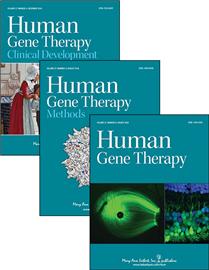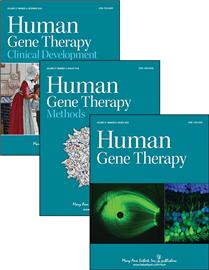
Credit: ©Mary Ann Liebert, Inc., publishers
New Rochelle, NY, December 29, 2016–Many gene therapy-based approaches are in development to combat genetic and other causes of blindness and vision loss, and much can be learned about the safety and effectiveness of these promising new therapies by studying them first in non-human primates before initiating clinical trials, as shown by the results of a study published in Human Gene Therapy, a peer-reviewed journal from Mary Ann Liebert, Inc., publishers. The article is available free on the Human Gene Therapy website until January 29, 2017.
A team of researchers led by Jean Bennett, Scheie Eye Institute, University of Pennsylvania, Perelman School of Medicine, Philadelphia, evaluated and compared two adeno-associated virus (AAV) vectors designed to deliver therapeutic genes directly to the eye when administered via subretinal injection to non-human primates. They report the differences in gene expression efficiency and immunogenicity across different doses in the article entitled "Evaluation of Dose and Safety of AAV7m8 and AAV8BP2 in the Non-human Primate Retina."
Gene therapies developed and tested in mice may present quite different safety and efficacy profiles when administered to humans. Evaluating gene delivery vectors in non-human primates provides results that are more predictive of what one can expect in humans.
"Dr. Bennett and her team have already made major breakthroughs in gene therapy for genetic causes of blindness. The work published here promises to greatly improve the technology for ocular gene therapy," says Editor-in-Chief Terence R. Flotte, MD, Celia and Isaac Haidak Professor of Medical Education and Dean, Provost, and Executive Deputy Chancellor, University of Massachusetts Medical School, Worcester, MA.
###
About the Journal
Human Gene Therapy, the Official Journal of the European Society of Gene and Cell Therapy, British Society for Gene and Cell Therapy, French Society of Cell and Gene Therapy, German Society of Gene Therapy, and five other gene therapy societies, is an authoritative peer-reviewed journal published monthly in print and online. Led by Editor-in-Chief Terence R. Flotte, MD, Celia and Isaac Haidak Professor of Medical Education and Dean, Provost, and Executive Deputy Chancellor, University of Massachusetts Medical School, Human Gene Therapy presents reports on the transfer and expression of genes in mammals, including humans. Related topics include improvements in vector development, delivery systems, and animal models, particularly in the areas of cancer, heart disease, viral disease, genetic disease, and neurological disease, as well as ethical, legal, and regulatory issues related to the gene transfer in humans. Its companion journals, Human Gene Therapy Methods, published bimonthly, focuses on the application of gene therapy to product testing and development, and Human Gene Therapy Clinical Development, published quarterly, features data relevant to the regulatory review and commercial development of cell and gene therapy products. Tables of contents for all three publications and a free sample issue may be viewed on the Human Gene Therapy website.
About the Publisher
Mary Ann Liebert, Inc., publishers is a privately held, fully integrated media company known for establishing authoritative peer-reviewed journals in many promising areas of science and biomedical research, including Nucleic Acid Therapeutics, Tissue Engineering, Stem Cells and Development, and Cellular Reprogramming. Its biotechnology trade magazine, GEN (Genetic Engineering & Biotechnology News), was the first in its field and is today the industry's most widely read publication worldwide. A complete list of the firm's 80 journals, books, and newsmagazines is available on the Mary Ann Liebert, Inc., publishers website.
Media Contact
Kathryn Ryan
[email protected]
914-740-2100
@LiebertPub
http://www.liebertpub.com
############
Story Source: Materials provided by Scienmag





